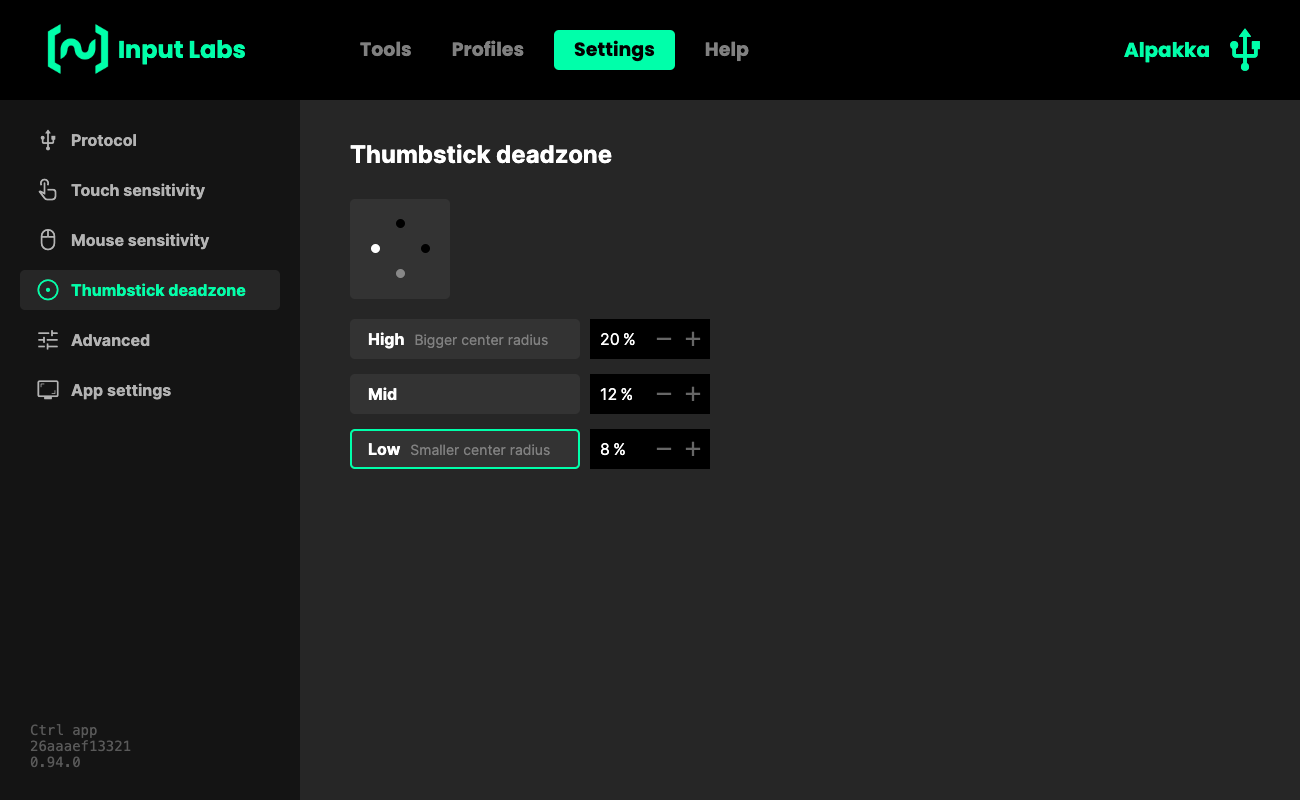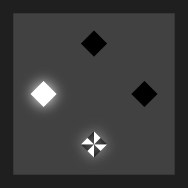Alpakka 1
OverviewManualGalleryComponents
Alpakka manual
DIY & Hardware
Setup
References
Profiles
Developer
Tune settings
Tune settings define how the controller works at a fundamental level, independently from the operative system. these settings are applied to all profiles, and will be stored in the controller memory even if the controller is powered off.
Tune settings are configurable directly on the controller, or also in the Ctrl app.
In the Ctrl app
- Settings tab in the header.

Controller shortcuts
- Hold the Home
button.
- Hold the Directional Hat
either up, down, left or right. Each direction tune a different option (see below).
- Release the Directional Hat
, but keep holding the Home
button.
- Notice how the LEDs are showing which tune option is selected (represented by a solid light) and its current value (represented by a blinking light).
- Change the value up or down by using the scroll wheel up or down.
- Release the Home
button.
← Tune down (scroll down) | Tune up → (scroll up) | ||
|---|---|---|---|
Protocol mode Hold Home + hold Hat up |  XInput Windows (Default) |  XInput Linux / MacOS |  Generic / DirectInput |
Thumbstick deadzone Hold Home + hold Hat left |  Low 8% (Default) |  Mid 12% |  High 20% |
Touch sensitivity Hold Home + hold Hat right |  Low (More stable) |  Mid (Default) |  High (More responsive) |
Mouse sensitivity Hold Home + hold Hat down |  Low 1080p (Default) |  Mid 1440p |  High 4K |
Protocol mode
Defines how the controller communicates with the computer operating system, XInput for either Windows or Linux are the most recommended, but in some cases the Generic gamepad mode can also be useful (eg. Retro games and simulators).
Thumbstick deadzone
Defines how much of the inner movement of the thumbstick will be ignored, increase this according to your thumbstick wear (thumbstick centering spring will get softer over time). Please check Calibration instructions before tweaking this parameter.
Touch sensitivity
Defines how sensitive the touch surface is. Depending on which conductive material was used on the touch surface you may want to tweak this parameter:
- The default presets adjust the sensitivity automatically, and comes in 3 variants (low, mid, high).
- 2 additional custom presets are available and allow to change the values manually in the Ctrl app, keep scrolling up to access them.
- Set a higher sensitivity if the detection is not registered consistently and it has microcuts.
- Set a lower sensitivity if the detection has false positives and triggers by itself.
Mouse sensitivity
Defines how sensitive the mouse emulation is, using recommended values for different display resolution with the default OS sensitivity. This is similar to changing the DPI on a traditional mouse. Check OS setup and Mouse for more details.

